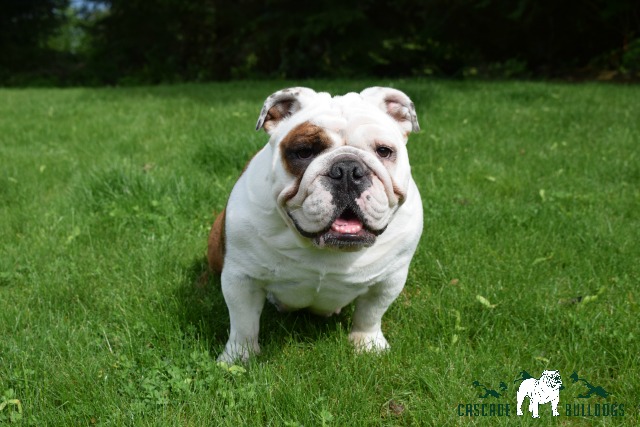BULLDOG TRAINING
Bulldog Puppy Training: 7 Tips to Keep in Mind
01. Know that your bulldog puppy is still an infant

02. Show, don’t just tell
Puppies speak in an adorable combination of yips, whines, and tiny barks. They do do not speak Human. “No”, “sit” and “stay” may well become commonplace words in your household eventually, but they are not innate. Your confused little guy has no idea what “no” means. For all he knows, its your your favorite slippers or those delicious things you give him out of the crinkly bag in the cupboard. He sure loves those! So instead of expecting him to understand exactly what you mean, show him instead by using both verbal commands and hand signals. Once you are sure he understands, repeat the hand signal over and over. Puppies are full of love and energy, and are easily distracted by the world around them. Be firm, be loving, but most of all, be consistent.
03. Provide spontaneous rewards
04. Learn bulldog body language
05. Keep your bulldog puppy in a safe and secure environment
06. Ignore bad behavior
Of course, if your bulldog is engaging in a behavior that is dangerous to himself or others, a shout or strong reprimand may be necessary. He will need to learn that running into traffic or chasing the mailman is not okay under any circumstances. However, if he is in a safe environment and is engaging in attention-seeking behaviors—such as jumping on your legs or scratching at the furniture—ignoring the behavior can have a powerful and immediate effect.
07. Reward good behavior
Tips for Training an Adult Bulldog
Bulldog training works best when you start when the bulldog is just a puppy—the earlier, the better. But unlike the old adage “you can’t treat an old dog new tricks,” it’s never too late to teach your bulldog proper behavior. An old dog can learn new tricks if you have the patience and determination to remain consistent and vigilant.
Know the breed
Daily exercise
Be a strong leader
Socialize your bulldog with other dogs and pets
General Tips
Start obedience training early

